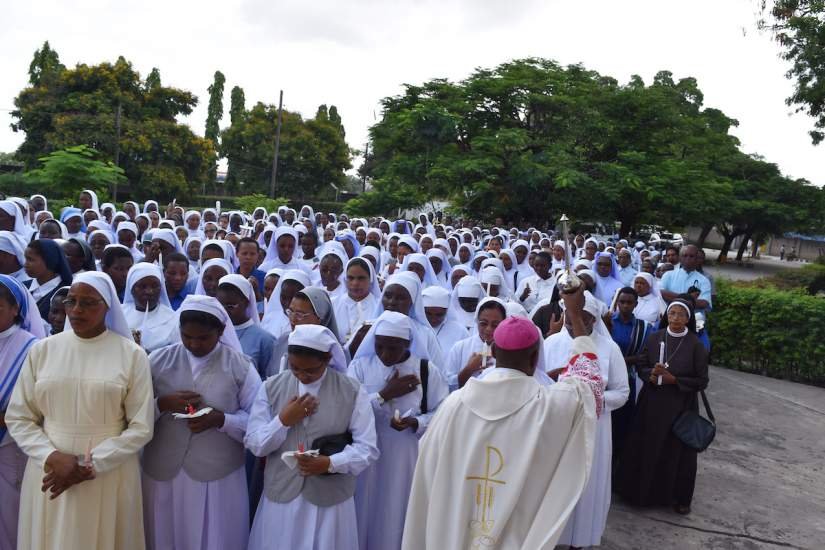Tanzania is a land of diverse cultures, landscapes, and beliefs. Tanzania Religion: As one of East Africa’s most spiritually diverse nations, the country is home to various religious practices that coexist harmoniously. Religion plays a vital role in the everyday lives of Tanzanians, shaping their values, customs, and traditions. From the centuries-old presence of Islam on the coast to the growing influence of Christianity inland, Tanzania’s religious landscape offers a fascinating glimpse into its spiritual heart.
This blog explores the major religions in Tanzania, their history, influence, and the role they play in the country’s rich cultural tapestry.
Table of Contents
- Introduction
- Religious Diversity in Tanzania
- The Historical Context of Religion in Tanzania
- Pre-Colonial Religious Practices
- The Arrival of Islam
- The Spread of Christianity
- Major Religions in Tanzania
- Christianity
- Islam
- Traditional African Beliefs
- Christianity in Tanzania
- Catholicism
- Protestantism
- The Rise of Evangelical and Pentecostal Churches
- Islam in Tanzania
- The Historical Role of Zanzibar
- Islamic Practices and Festivals
- Traditional African Religions in Tanzania
- Belief in Ancestors
- Rituals and Ceremonies
- Religion and Society in Tanzania
- Interfaith Harmony
- Religion in Daily Life
- Religious Festivals in Tanzania
- Christian Festivals
- Islamic Festivals
- Traditional Ceremonies and Celebrations
- Religion and Politics in Tanzania
- Challenges Facing Religion in Tanzania
- Conclusion
1. Introduction
Tanzania, known for its majestic wildlife and diverse landscapes, is also a spiritual hub where religious traditions flourish. Religion in Tanzania reflects the country’s complex history and cultural influences. Today, Christianity and Islam are the dominant religions, while traditional African beliefs remain significant in various regions. The coexistence of these faiths highlights Tanzania’s unique spiritual heritage.
This article delves into Tanzania’s religious diversity, exploring the history, practices, and role of religion in shaping the country’s cultural identity.
2. Religious Diversity in Tanzania
Tanzania’s population is roughly divided between Christianity, Islam, and traditional African religions. This religious diversity has created a mosaic of beliefs, with each faith contributing to the nation’s culture and social fabric.
- Christianity: Approximately 63% of Tanzanians identify as Christians, making it the largest religion in the country.
- Islam: Islam is practiced by about 34% of the population, particularly along the coast and in Zanzibar.
- Traditional African Beliefs: Though smaller in number, traditional African religions continue to hold cultural importance, especially in rural areas.
Despite these religious divisions, Tanzania is known for its peaceful coexistence among different faiths, creating an atmosphere of mutual respect and unity.
3. The Historical Context of Religion in Tanzania
Pre-Colonial Religious Practices
Before the arrival of foreign religions, Tanzania’s indigenous communities practiced animism and traditional African religions. These practices centered around ancestral worship, belief in spirits, and the reverence of natural elements like rivers, trees, and mountains. Rituals and ceremonies played a key role in maintaining the balance between the physical and spiritual worlds.
The Arrival of Islam
Islam’s introduction to Tanzania dates back to the 8th century, when Arab traders arrived on the East African coast. Zanzibar, in particular, became a hub for Islamic culture and learning, influencing the coastal regions and beyond. Through trade and intermarriage, Islam spread inland, becoming a significant religious force by the 12th century.
The Spread of Christianity
Christianity arrived much later, with the first missionaries reaching Tanzania in the 19th century. German and British colonialism facilitated the spread of Christianity, particularly in mainland Tanzania. Catholic and Protestant missionaries established schools, churches, and hospitals, making the religion an integral part of the community. Christianity rapidly spread across the country, particularly in the inland regions.
4. Major Religions in Tanzania
Tanzania’s religious landscape is predominantly shaped by three main faiths: Christianity, Islam, and traditional African beliefs.
Christianity
Christianity is the most widely practiced religion in Tanzania, with a significant presence across the mainland. It is divided into several denominations, including Catholicism, Protestantism, and more recently, Pentecostal and Evangelical movements.
Islam
Islam is the dominant religion along Tanzania’s coast, especially in Zanzibar and Dar es Salaam. It is primarily Sunni Islam, with a strong cultural connection to the Middle East and the Indian Ocean trade.
Traditional African Beliefs
Although not as prevalent as Christianity or Islam, traditional African religions continue to influence Tanzanian culture. These beliefs focus on the spiritual connection between people, nature, and ancestors, and are often practiced alongside Christianity or Islam.
5. Christianity in Tanzania
Christianity has a long and influential history in Tanzania, with various denominations contributing to its spread and growth.
Catholicism
Catholicism was one of the first Christian denominations to establish a presence in Tanzania. Early Catholic missionaries focused on education, healthcare, and converting local communities. Today, the Catholic Church remains one of the most influential religious institutions in the country, with a large number of followers.
Protestantism
Protestantism arrived in Tanzania during the 19th century, primarily through German Lutheran and British Anglican missionaries. Protestant churches have played a significant role in education and social services, helping to shape Tanzania’s religious and social landscape.
The Rise of Evangelical and Pentecostal Churches
In recent decades, there has been a surge in Evangelical and Pentecostal movements across Tanzania. These churches emphasize a personal relationship with God, spiritual renewal, and vibrant worship practices. They have attracted many young followers, particularly in urban areas.
6. Islam in Tanzania
Islam has deep roots in Tanzania, especially along the coast and in Zanzibar, where it was introduced by Arab traders.
The Historical Role of Zanzibar
Zanzibar played a pivotal role in the spread of Islam in Tanzania. As a major trading hub, the island attracted Arab, Persian, and Indian traders, many of whom were Muslim. Over time, Islam became the dominant religion in Zanzibar and spread to other parts of Tanzania.
Islamic Practices and Festivals
Islamic practices in Tanzania follow traditional Sunni beliefs, with a focus on daily prayers, fasting during Ramadan, and the observance of Islamic holidays such as Eid al-Fitr and Eid al-Adha. In Zanzibar, Islamic culture is deeply woven into daily life, with mosques, Islamic schools (madrasas), and religious ceremonies playing a central role.
7. Traditional African Religions in Tanzania
Though less visible in modern Tanzanian society, traditional African religions continue to influence local customs and practices.
Belief in Ancestors
Central to traditional African religions is the belief in ancestors as spiritual guides. Tanzanians who practice traditional religions often seek the favor of their ancestors through rituals, offerings, and prayers.
Rituals and Ceremonies
Traditional religious practices in Tanzania include rituals for healing, protection, and blessing crops. These ceremonies often involve music, dance, and sacrifices, reflecting the deep connection between the spiritual and physical worlds.
8. Religion and Society in Tanzania
Religion plays a significant role in Tanzanian society, influencing everything from politics to daily interactions.
Interfaith Harmony
One of Tanzania’s most remarkable characteristics is its religious tolerance. Christians, Muslims, and followers of traditional African religions coexist peacefully, with interfaith marriages, festivals, and friendships being common. The government actively promotes this harmony, ensuring that religious differences do not become a source of conflict.
Religion in Daily Life
For many Tanzanians, religion is a daily practice. Whether attending church, praying at the mosque, or participating in traditional ceremonies, faith shapes the daily lives of Tanzanians. Religious leaders are highly respected, and places of worship play a central role in communities.
9. Religious Festivals in Tanzania
Tanzania celebrates a variety of religious festivals, reflecting its diverse spiritual landscape.
Christian Festivals
Christmas and Easter are the most widely celebrated Christian holidays in Tanzania. Churches hold special services, and families come together to share meals and gifts. Many towns and cities also host public celebrations and parades.
Islamic Festivals
In Muslim-majority areas like Zanzibar, Ramadan and Eid are important religious events. During Ramadan, Muslims fast from sunrise to sunset, and the end of the holy month is marked with feasts and celebrations for Eid al-Fitr. Eid al-Adha is another major Islamic festival, commemorating the willingness of Ibrahim (Abraham) to sacrifice his son.
Traditional Ceremonies and Celebrations
In rural areas, traditional religious ceremonies, such as harvest festivals and ancestor worship rituals, continue to be important cultural events. These ceremonies often include music, dance, and storytelling, keeping the country’s ancient spiritual traditions alive.
10. Religion and Politics in Tanzania
While Tanzania is a secular state, religion does play a role in its politics. Religious leaders often influence political decisions, and politicians frequently seek the support of religious communities. The government promotes religious tolerance, ensuring that all faiths are respected and that religious diversity remains a strength rather than a source of division.
11. Challenges Facing Religion in Tanzania
Tanzania’s religious landscape is not without challenges. Rising religious conservatism in some areas has led to tensions between different communities. Additionally, the spread of new religious movements and the influence of foreign religious groups have sometimes created friction. Despite these challenges, Tanzania remains committed to religious tolerance and peaceful coexistence.
12. Conclusion
Tanzania’s religious diversity is one of its greatest cultural treasures. The country’s spiritual landscape is shaped by centuries of history, from the arrival of Islam and Christianity to the enduring influence of traditional African beliefs. This harmonious coexistence of faiths not only defines Tanzania’s past but also continues to shape its future. As Tanzania grows and modernizes, its religious diversity remains a cornerstone of its national identity, offering a glimpse into the spiritual heart of East Africa.


